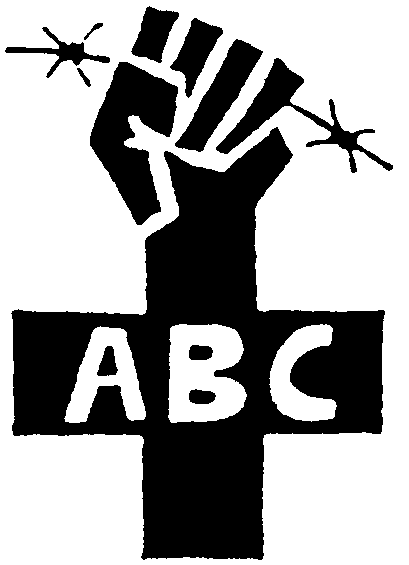Americanisation Of The British Criminal Justice System
A recent Government announcement that it was considering introducing U.S. style prison sentences like a hundred years custody for the most serious offences is on one level a straightforward attempt to undermine a recent European Court of Human Rights ruling that life sentence prisoners should be given some hope that their sentences will be reviewed before they die, and on another level evidence that the Americanisation of the British criminal justice system continues to increase and deepen.
Apart from the probable introduction of prison sentences that are in effect a slow form of capital punishment, an American penology has characterised the treatment of British prisoners for quite some time in the form of the treatment model with its psychology-based programmes and courses designed and inspired by Canadian and U.S. ideologies regarding “offending behaviour”, which is attributed not so much to social and environmental causes but more the individual pathology of the “offender”. So the fact that the prison population is drawn disproportionately from the poorest and most disadvantaged group in society is of absolutely no significance and instead a crude behaviourist notion prevails that providing prisoners can be re-socialised into behaving in a “normal” way then “offending behaviour” can be exorcised from their thinking before they're released back into the same desperate economic and social circumstances.
Predictably, the” treatment model” with its programmes and courses has had absolutely no appreciable effect on recidivism rates.
As in American prisons, prison-hired psychologists in Britain have carved out a veritable industry for themselves in the prison system by subscribing to the belief that inequality, disadvantage and poverty have absolutely nothing to do with why most people end up in prison and instead everything to do with individual pathology in the form of inherent personality disorders and an inability to distinguish right from wrong. And again as in the U.S. prison psychologists in Britain have now become an integral part of the system of control and repression in prisons, legitimising it with a language and narrative of “treatment” and addressing prisoner's “needs and risks”. So entrenched have psychologists now become in the prison system that, like their American counterparts, they often willingly assist in the use of the worst forms of repression against prisoners labelled the most “difficult” and “unmanageable”.
American prison officials penchant for euphemisms to disguise the reality of it's worst practices and forms of punishment, such as “special management units” where in fact prisoners are clinically isolated and psychologically brutalised, is a tendency that finds expression in British prisons also now. “Close Supervision Units” and “Intensive Intervention Units”, overseen and managed by both jail managers and psychologists, are also places where “difficult” prisoners are subjected to extreme punishment and a denial of basic human rights, often to the extent where many are driven to insanity.
The American “treatment model” of prisons probably finds it's most extreme expression in the U.K. Prison system in the from of the “Dangerous Personality Disorder Units” (DPDU) created and overseen by psychologists from the psychopath-spotter school of psychology that defines all “anti-social” behaviour on the part of the least powerful and wealthy as symptomatic of psychopathy. In the totalitarian world of prison either fighting the system or confronting the institutionalised abuse of power that prevails there is sufficient to have oneself labelled a “psychopath” by psychologists anchored mind, body and soul to the prison system. In the case of life sentence prisoners such psychologists now have the power to decide if they're sufficiently risk-free to be released.
It is not just within the prison system that the American influence is apparent, it's also recognizable in the radically changed role of probation officers and criminal justice system social workers from what was traditionally “client-centred” liberal occupations to a overtly “public protection” centred extension of the police and prison system. Now a closer equivalent of the American parole officer, probation officers and criminal justice system social workers in the U.K. now see their role as one of policing parolees or “offenders” on supervision orders and returning them to jail for the slightest technical breach of their licence conditions. The massive increase in the use of community supervision orders as a from of social control has created a veritable ghetto of marginalised people in poorer communities who exist constantly in the shadow of imprisonment and omnipotent power of their supervision officers. This mirrors what has been taking place in some U.S. states as the global economic crisis has virtually eradicated legitimate employment in poor communities and replaced it with an alternative economy of illegal drugs, resulting in the almost mass criminalisation of young working class men, especially those from poor Afro-American communities. In such U.S. states and deprived communities prisons now replace factories where the new underclass are increasingly concentrated and forced to work as cheap labour for multinational private security corporations that now own and operate a significant portion of the American prison system. This new prison industrial complex is laying roots in the U.K. too and it is from the poorest de-industrialised communities that it draws its sources of cheap labour and human commodities.
This U.S. cultural influence on the criminal justice system is far greater in the U.K. than anywhere else in Europe, which accounts for it having the largest prison population in Europe and the longest prison sentences. It is also forever vulnerable to the American style prison riot when despair and hopelessness overshadows prisoners lives completely and there is essentially nothing left to lose. As a model of either justice or retribution the American criminal justice system is riddled with corruption and failure, and yet Britain slavishly attempts to imitate it in its quest to achieve absolute social control at a time when the lives of the poor are being made increasingly unendurable and society continues to fracture and polarise.
John Bowden 6729
HMP Shotts
February 2014
More of John Bowden's writings are available here.


